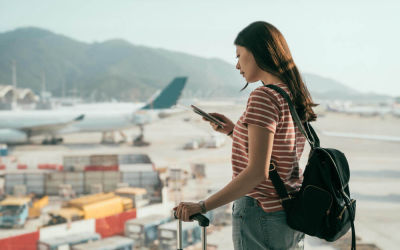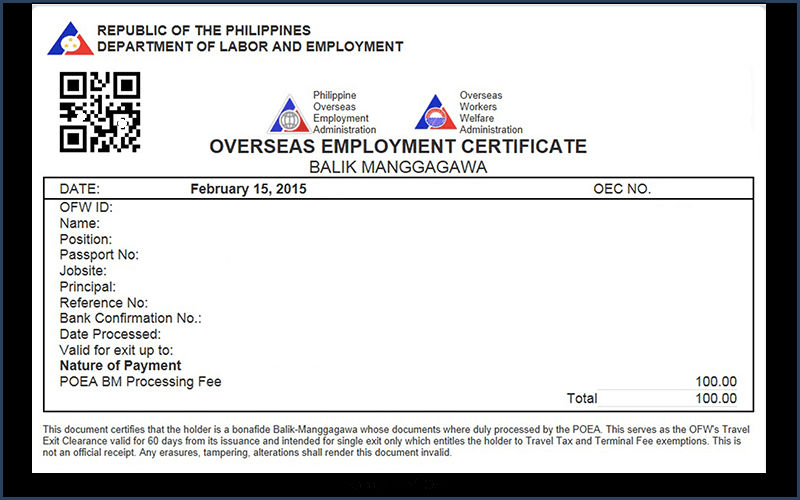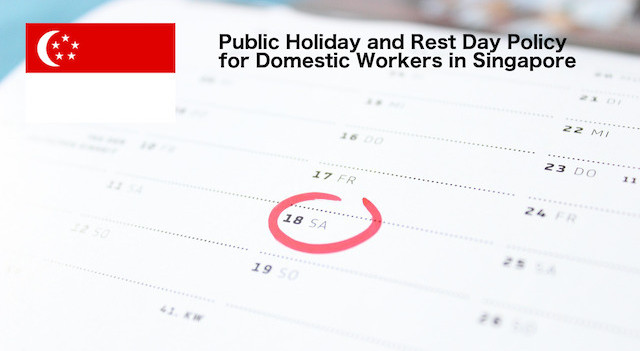
Most of Foreign Domestic Workers (FDW’s) belong to countries such as Indonesia, Philippines, Myanmar, Bangladesh etc. To accommodate and ensure human rights protection of this huge number of FDWs, Singapore has set strict laws for the overseas vacations and return of FDWs to ensure a smooth maid home leave process.
If you’re a Foreign Domestic Worker or have employed one in Singapore, here is all you need to know about maid overseas leave in Singapore!
General Guidelines for Maid Overseas Leave
There are some important rules regarding maids leaving for their own countries that are compulsory for all to follow regardless of their nationality. Every maid must have a valid passport which should not expire until their return flight to Singapore.
The maid must take her work permit card with her while traveling and keep it safe during her stay. To re-enter Singapore after her leave is over and to complete the maid home leave process, the work permit is necessary.
For all employers, it is a good practice to keep a copy of their maid’s travel ticket and departure itinerary, so they are also aware of the maid’s traveling activities in case of any issues.
Apart from these general guidelines, which apply to all maids in Singapore going for home leave overseas, there also exist some specific rules for maids belonging to particular countries. Below are the rules for some countries with the highest ratio of nationals working in Singapore as maids (Filipino and Indonesian).

Filipino Maids Home Leave
For Filipino maids wanting to return to the Philippines, there is a strict and rigorous registration process that they must go through. First they need to register with the Philippines embassy for a temporary exit to receive an authenticated contract (full process).
The maid home leave registration process differs according to the time a maid has spent with a particular employer. For those working less than 2 years, the maid and employer must involve an external agency to get approval for the maid’s home leave. For those working for more than 2 years, the maid home leave process is substantially easier and can be achieved by a simple walk-in embassy visit, provided the maid has all the required documents.
Another tough rule is that Filipino maids must also have an Overseas employment certificate. This certificate is important for a smooth maid home leave process while immigrating and returning to Singapore. It is compulsory for Filipino maids to show this to the immigration officer while boarding; otherwise, they will be denied entry despite having a valid work permit.
Intimidated by the process? Worry not, for here’s how you can easily get the overseas employment certificate.

You can apply for it online via the processing system. In case of returning to Singapore to work for your previous employer, the online site displays a message confirming your exemption from processing fee payment and obtaining the Overseas employment certificate. However, in case of returning to Singapore to work for a different employer, the online site will lead you to apply for a new appointment for the Overseas employment certificate, and you will also have to pay the fees.
Indonesian Maids Home Leave
Unlike the tedious maid home leave process for Filipino maids, maids of Indonesian nationality do not have to go through so many clearances for home leave. There is no need to register themselves with the Indonesian embassy. The only requirement is ensuring a minimum six months validity for their passports. Indonesian maids must also have a valid KTKLN card which is an acronym for a local identification card for Indonesian workers working in foreign countries.
A valid passport, KTKLN card, and work permit are sufficient to allow all Indonesian maids to board their return flights to Singapore and complete their maid home leave process requirements.
Levy Waiver
While maids are on home leaves, employers are still charged a levy. Employers may however, apply for a levy waiver once their maid returns to Singapore and get reimbursed for the time the maid was away from Singapore on overseas leave.
To qualify for a levy waiver while the maid is not in Singapore, the maid’s home leave must be for at least 7 days and at most 60 days. Not a lot of people are aware of this, and this actually helps employers save quite a decent amount of money that is otherwise wasted as unnecessary tax. So remember this!
Another facility that is available for maid employers in Singapore is the option to defer their bi-annual medical examination (6ME). All these tips will surely help employers save money in the entire maid home leave process!
Prolonged Overseas Leave
What if the maid goes on an overseas leave beyond the 60 calendar days period covered by the levy waiver? In that case, the employer must immediately apply for the maid’s work permit to be cancelled otherwise the levy will continue to be charged and no waiver will be accepted for it.
The employer must also keep a copy of the maid’s travel tickets so Singapore Government authorities can verify the maid’s leave. When the maid wants to return from the prolonged leave, employers must apply for a new work permit and re do the entire procedure from scratch. Therefore prolonged overseas leaves for more than two months are not preferred in Singapore.
However, in case the maid does not return to Singapore at all after going for an overseas leave, employers may apply for a levy waiver for the entire duration of the maid’s absence. The only condition for this is that the waiver must be applied for within a year of the levy bill.
Takeaway
These sets of rules are very important and must be followed to ensure all maids have a smooth home leave process and may enjoy their holidays back home to the fullest without worrying about work permit-related issues!



